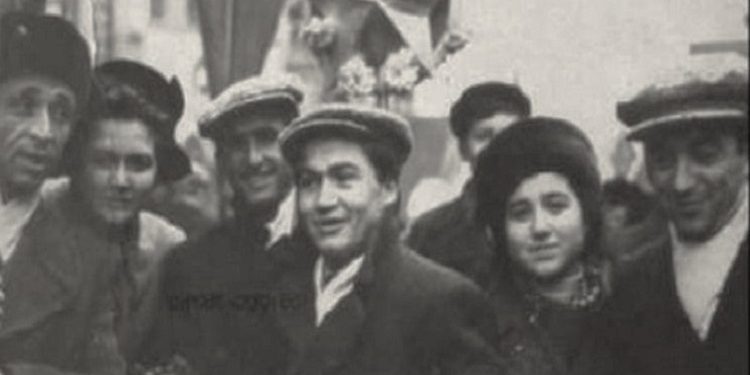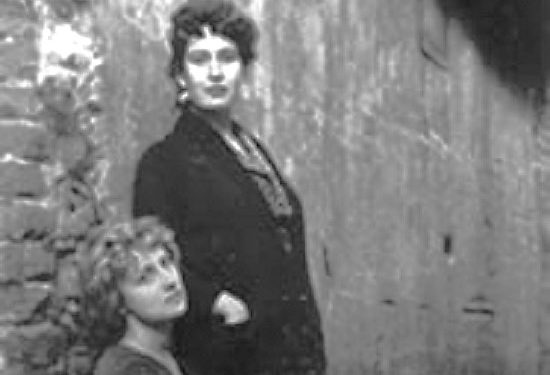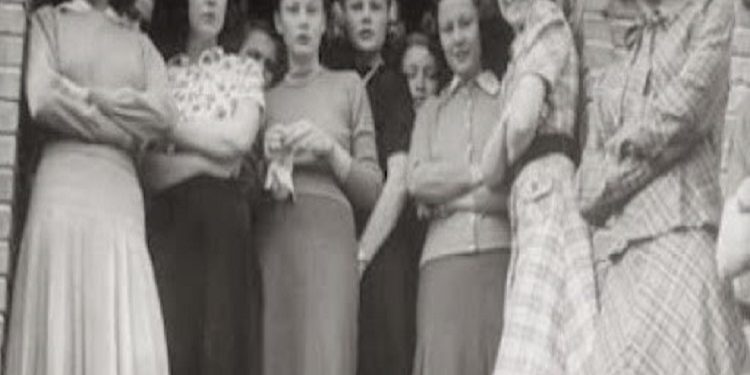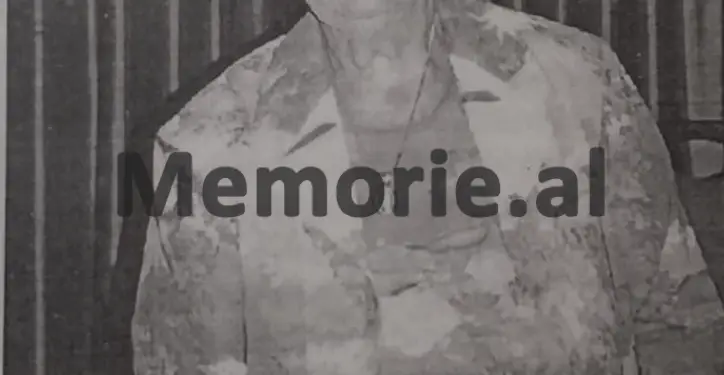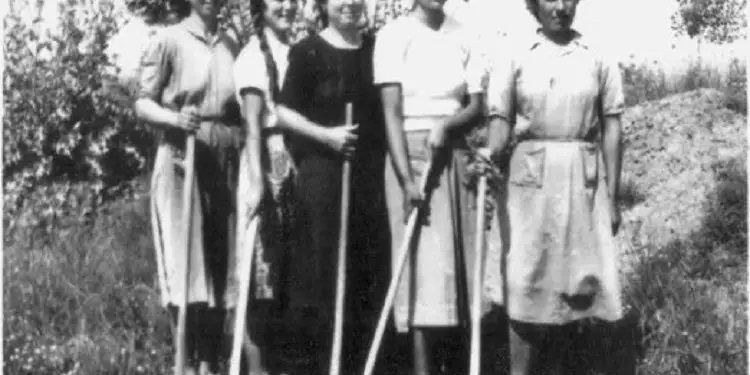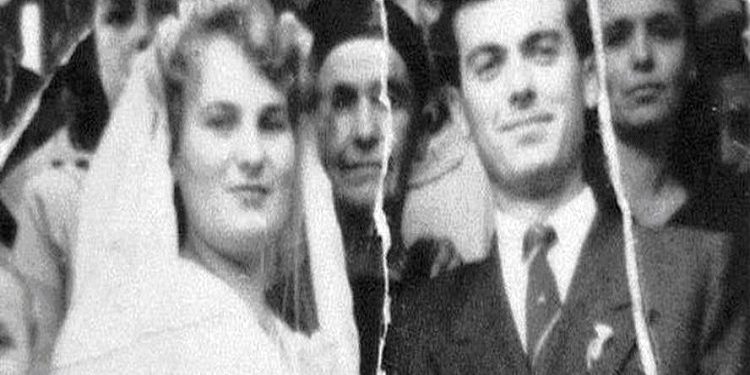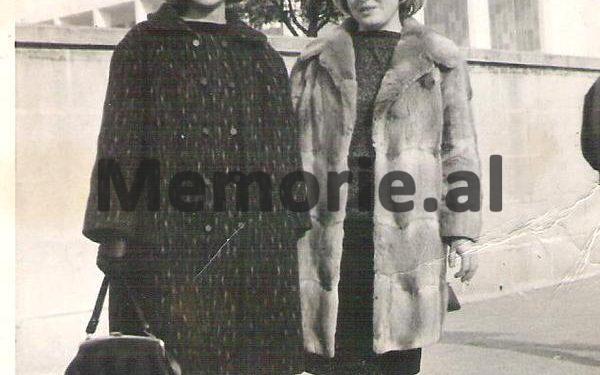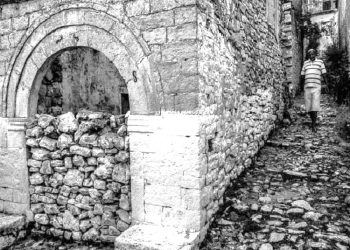By Todi Bozo
Memorie.al / Producer Todi Bozo published the screenplay for the first time, which for financial reasons never became a documentary film. What happened to the fates of those who were in love with foreign women after the breakup with the Soviet Union?! Here are the testimonies that Bozo, as one of the people who went through this fate, collected from the foreign women who were convicted in Albania.
INTRODUCTION
The film “When the Nests Were Broken” was intended to be built on materials from film archives, photo materials which the people themselves possessed, on the stories of those who were in Albania, Russia, Israel, America, and their children, about the bitter past and the hopes for a better future. A future where people in the world will not be afraid of their loves.
This is not simply about two states, two peoples. How many people in the world have fallen in love, and will fall in love regardless of their nationalities or citizenships. And how many have been destroyed and sacrificed because of them, for the sake of political conjunctures, for the sake of the walls erected. But people have the right to live, to love without fear that someone somewhere on a white day, or black night, decides and breaks their happiness.
This film, the screenplay of which I wrote back in 1995, would appeal for this. Everything new on this earth comes with difficulties, with pain and sacrifice. Therefore, all the people of the world must strive to bring it about. Let the idea of a wise saying enlighten our minds: “When the winds of great change begin to blow, we should not build walls to block them, but unfurl the sails and build windmills.”
They were the years of the Great Friendship, the 1950s. After the break with Yugoslavia, the Soviet Union needed an outlet to the Adriatic. This led to the great flirtation between Tirana and Moscow. On a sunny day, Enver Hoxha and Khrushchev planted the tree of friendship in Tirana, which promised a long and warm spring. It is still the season when the doves in the “Red Square” coo and join beaks with each other.
In the universities of the Soviet Union, dark-haired boys and smiling girls from the Adriatic shores appeared. Spring heralded love. Like the doves, the young couples joined their loves, promising each other eternal love. Thus began the construction of “mixed” nests.
A Soviet plane has landed at Rinas airport. Along with other passengers, a mother dressed in black descends from it. She approaches the camera and begins to speak. “I was in Moscow, at my son’s wife’s family. I enjoyed it very much, we visited beautiful places…!” Happy passengers pass in front of the camera. In the promenade, we see hundreds of people strolling peacefully.
The silence is broken by a powerful clap of thunder. The sky flashes. Black clouds attack each other. An eternal union was thought of, but the winter of 1961 came, and everything was extinguished as if it had never been. The 15 years of the century of “golden friendship” were ending. But what about the people? What about their hearts, dreams, loves, and families? Where will they go, what will happen to their nests?
WHEN THE NESTS WERE BROKEN
Yellowed leaves fall to the ground, perhaps also from the Tree of Friendship. A powerful new wind sweeps them away. Hard times are coming. The whistle of the wind increases. Church bells ring in a church tower in Albania. The bells also ring in a Russian church in Moscow. Their voices spread despair. Two powerful, angry horses rush at each other.
All their muscles are tense in a fierce battle. Enlarged and frantic eyes stare at each other. Khrushchev speaks angrily on the podium of a congress. His movements are sharp, his face grim. On another tribune in Albania, Enver Hoxha speaks and raises his hand in the air with hatred and anger.
One in Moscow says: “The Albanian leadership sold out to imperialism for 30 kopecks!” The other in Tirana replies: “Albanians will eat even grass, but they will never sell out to imperialism. Traitors are them.”
THE RAGING HORSES ATTACK EACH OTHER IN A NEW CLASH
Soviet ships depart from the Bay of Vlora. In the premises of the Pashaliman Military Base, where Soviet sailors previously lived, a total mess reigns. Thus began their war. The consequences would fall on the heads of simple people, on young children separated from their parents, on those who bid farewell to each other with a thread of hope that they would see each other again one day.
In a photo, the mother who descended from the plane is visible. She holds a healthy blonde child in her arms. Like a warning of the evil that is coming is the contrast in their faces. While the child shines with joy, there is pain and longing in the eyes of the grandmother dressed in black. The two index fingers of the grandmother and granddaughter are joined. It seems as if through this contact, they convey to each other those feelings of love that they cannot express in words.
Two wheels of the plane begin to move slowly on the runway. Then faster, faster. Its powerful noise fills the space. In the cloudy sky, the figure of the plane gradually shrinks. On an apartment door, a hand in a black glove knocks hard. Then the prolonged signal of the doorbell rings. Two bare female feet drop from the bed and, stumbling in haste, barely manage to put on slippers. In the background of these shots, her voice is heard.
“I thought my husband might have had an accident, because he was on duty.” We discover the portrait of Inga Vitalyevna, a noble-looking woman whose gray hairs show the passage of time. The years have done their work. But the gentle, penetrating gaze has still retained its freshness. She continues to tell: “That night they took me, only my 13-year-old daughter was at home. She was very frightened. But I told her: Don’t believe anything you hear about us. I will come back. You go to your aunt’s.”
Raindrops strike the window panes. From time to time, the light of lightning illuminates them. It thunders outside. Two children’s hands close the apartment door. We hear the stifled sobs of the little girl. Her small feet trudge across the wet asphalt of Tirana’s streets. In a general view of the empty streets lit by neon lamps, her lonely silhouette can be seen moving. A light rain began to fall, but she walks and walks.
She is holding something in her hands. Under her arm, as if to protect it from all evil, she hugs her beloved kitten, with a ribbon around its neck. The kitten looks imploringly at its owner and meows softly. With the other hand, she holds the cage with the canary, which, soaked by the rain, is huddled and crouched in a corner, in its prison.
The mother’s voice continues: “So in the middle of the night, through the deserted streets, the girl passes through the whole city with the cat under her arm and the canary cage in her hand… her sister-in-law kept the girl for six years and raised her as her own daughter.”
Inga Vitalyevna’s eyes are moist with tears, ready to burst. She continues: “In order to save my husband and daughter from the consequences that would await them after my arrest, we divorced. My husband and I were both in agreement, no matter how long the separation lasted. After much investigation, pressure, and sleepless nights, they finally convicted us on an untrue charge, espionage.
Then they took me to the Kosova Camp, Elbasan district. On the very first day, they gave me a large hoe and put me to hoe corn, along with other convicted Albanian women. I had been a teacher, besides the months of investigation had completely worn me out, so I lagged behind my comrades.”
The whole scene is filled with the scorching summer sun. Vapors rise from the ground after plowing. A hoe goes down and up with difficulty. Near the tracks left by this hoe, two freshly hoed rows of corn appear on both sides. Suddenly, near this barely moving hoe, two other hoes fall; they hoe quickly, moving forward. In the general shot, the women working in the cornfield are visible.
Inga continues: “If we did not meet the quota, we had many consequences, but while I was almost losing my strength, two Albanian friends stood by me. They also did my quota. Although the prison commander, Gani Mulleti, was a good man, the rules in the camp were very strict. They punished you even for very small things.
One day when we were collecting sunflowers, I took some seeds and put them in my pocket, without thinking that I could be severely punished for this. When we were returning to the camp, Sulbia, an elderly highlander woman, asked me for the seeds and when I gave them to her, she threw them away…!” Kobra, as they called a convicted spy, said to Sulbia: “Why are you interfering?” and Sulbia replied: “To cut off the treachery…!”
These are the fates of ordinary people. Those men and women, mothers and fathers, girls and boys who were completely innocent, but who carried on their shoulders the merciless game of high-ranking politicians.
Changes in political systems destroyed the nests of these people, those nests that they had built with warmth and love, and scattered them around the world, like cuckoo birds. But the “almighty gods” were not satisfied with separating children from their parents. This was little to show their power, their anger.
These “rebels,” citizens of different states who dared to love each other, had to experience the wrath of the “gods” on their souls. They had no right to know where their loved one was, they should not send letters and telegrams, and they should not talk on the phone, otherwise… woe to them.
No. These people, who “betrayed” the homeland, because they dared to marry foreigners, were interned and imprisoned. Even those who escaped persecution always had the note “married to a foreigner”…”married to an Albanian” next to their name (in secret documents).
In a scientific institution, the child was not given compensation, some miserable coins, because the child’s mother was a “traitor,” as she had been married to an Albanian. Nevertheless, every evening, never forgetting, the child wished good night to the father who was far away, but whose photograph she kept by her head.
Natasha P.
Gloomy time. December. The whistle of the wind chills the flesh. From the barbed wires surrounding the camp, like unceasing tears, crystal drops of dew-covered rain break off. In the guard posts, the guards wrapped in their raincoats try to escape the frosty wind.
We hear the voice of Natasha P.: “I just wanted to die; I couldn’t stand the pressure and torture. If you don’t admit you’re a spy, the investigator told me, we will arrest your husband and intern the children…!” Time and suffering have left their marks on Natasha’s portrait, but the warmth and kindness of her eyes have not faded.
“The investigator’s words horrified me, and in order to save my children and husband, I decided to lie. To admit that I was a spy. Nevertheless, my daughter was taken from being a fifth-year medical student to an agricultural cooperative and then a worker at N.SH.R.A.K. (State Farm).”
Natasha continues to tell: “We had a very beautiful white cat at home. In a letter I sent to my sister, I also wrote about the white cat. When they took me for investigation, the words ‘white cat’ were mentioned to me as a slogan…!” Natasha smiles bitterly: “I didn’t even understand what they were talking about and… I suffered for it. I was in the Belsh camp. There we had two food rations.
Bread with work and bread without work. Each one had a place in the yard where they lit a fire for cooking; we had to collect the kindling ourselves. One day in December, I couldn’t find wood, and a woman from Kruja gave me four or five pieces of kindling. For this, I was punished, by not being allowed to meet my daughter who came for a visit…!”
The rain continues to fall. A woman’s silhouette wrapped in a coat stands in front of the large camp gate. She holds a bag with items for the imprisoned woman. She looks pregnant. She is completely wet. The guards change in the guard posts. The woman moves restlessly in the mud in front of the gate. When dusk begins to fall and the hope of seeing her mother is over, after speaking for the last time with the gate policeman, she starts to leave. Somewhere she slips in the mud and falls, gets up with difficulty, and continues on her way.
The silhouette of the woman shrinks on the muddy road those winds between the hills. Over these scenes, Natasha’s voice is heard: “The girl waited all day outside the gate. In the middle of the icy rain. She was also pregnant, and in the evening, she took the road back. Two hours on foot through the rain, mud, and cold. When she arrived in Tirana, from the exhaustion of that day, she miscarried the child. All this for five pieces of kindling.”
The fate of the family of N.Ç., an Albanian officer, is tragic. His Russian wife was called to return urgently to the Soviet Union, along with the girls. The telegram stated that; the father was seriously ill. The wife left, shaken. After some time, another telegram came from the “wife,” informing N.Ç. that she loved someone else and would get married and stay in Russia. Only after 30 years did the lies come out, and they met in Sverdlovsk. For the first time, Naxhiu saw his grandchildren, his daughters, and his wife, who had never remarried.
Volya Vasilyevna Sharonova, head of the geological laboratory in Tirana, was accused and imprisoned on the charge of group espionage, a crime she had not committed and which was never proven. But she stayed in prisons and camps for 15 years. The film will reflect the prisons, the camps, the suffering of specific people. In Russia, Taisa Pisha sentenced to 16 years, now in Israel, Valentina Kelo sentenced to 15 years, and now in America, etc. / Memorie.al




